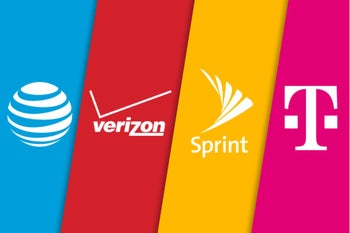After handing out the nation’s first-ever 5G mobile experience awards just a couple of weeks ago, the self-proclaimed “independent global standard for analyzing consumer mobile experience” is today going deeper to fully assess the general “mobile network experience” on the big four wireless service providers as of July 2020.
Predictably enough, Opensignal was not able to single out one carrier rising above the pack after conducting a grand total of nearly 16 billion measurements across 2.4 million mobile devices nationwide between March 16 and June 13. Instead, the analytics company’s second biannual US operator rankings of 2020 yield two big winners and a smaller one in Verizon, T-Mobile, and AT&T respectively.
Basically, that means Sprint is the report’s lone loser, which makes it interesting to see how T-Mobile’s scores might be affected in the short run by its ongoing “Now Network” integration process.
For its part, Magenta managed to prevail in three out of seven categories, with Big Red taking home three trophies of its own, and AT&T triumphing in perhaps the contest’s most important section.
Gaming, voice apps, and upload speeds are T-Mobile’s main strengths
For the first time ever, Opensignal performed a series of tests aiming to evaluate how users experience “real-time multiplayer mobile gaming” on US wireless networks for this latest report, filing T-Mobile, Verizon, and AT&T in the “Fair” category.
That means none of the three mobile network operators excels when it comes to this objectively challenging task, but T-Mobile racks up the least mediocre score, while Verizon and AT&T are pretty much tied in second place, with Sprint firmly positioned in the “Poor” category and thus delivering a completely “unacceptable” gaming experience with plenty of lag and a general lack of controllability.
Of course, many average users couldn’t care less about hardcore mobile gaming, which is why most T-Mobile customers are likely to be more interested in the “voice app experience”, i.e. the second section of Opensignal’s newest report dominated by the “Un-carrier.” Winning this prize means that T-Mo generally does the best job of minimizing call quality issues such as clicking sounds or distortion for users of over-the-top voice apps like Skype, WhatsApp, or Viber, although Verizon, AT&T, and even Sprint are ranked pretty close behind.
Interestingly, the “upload speed experience” contest of the March – June timeframe was not very close, yielding a clear victor in T-Mobile, even though the “download speed experience” hierarchy is entirely different.
AT&T wins a key battle, but Verizon takes no less than three titles home
After drawing Big Red for the 5G download speed “experience” award in Opensignal’s previous report and crushing both T-Mobile and Verizon in Ookla’s 5G speed tests last week, AT&T comes out on top as far as the overall “download speed experience” is concerned as well, with a significant advantage of 4.4 and 5.2 Mbps over silver and bronze medalists T-Mobile and Verizon respectively.
Ironically, both AT&T and T-Mobile averaged higher download speeds on 4G LTE alone, which means that at least for the time being, 5G connectivity is less of a benefit and more of an inconvenience for many customers of the two carriers.
Meanwhile, Verizon’s blazing fast mmWave-based Ultra Wideband network remains far too scattered to make a meaningful large-scale difference, but in terms of 4G availability and 4G “coverage experience”, there’s no rivaling the nation’s biggest wireless service provider.
Then again, it’s definitely worth highlighting that T-Mobile and AT&T are ranked very close behind Big Red in 4G availability and 4G coverage experience respectively. In fact, Verizon barely squeaks out a win in the former category, where AT&T and Sprint are also quite strong, providing a decent cellular signal for the overwhelming majority of its subscribers most of the time.
Finally, Verizon is yet again named the nation’s best mobile network operator for video consumption, with Sprint surprisingly ranked in second place, and both T-Mobile and AT&T filed in the Fair category as its users can often expect to notice “very slow loading times and prolonged stalling” on high-res content.
All in all, what the average user is likely to take away from this report is that Verizon’s network is best suited for binge-watching sessions, while T-Mobile has gamers and content creators covered, and AT&T caters to the general speed-addicted public. Unfortunately, that also means you need to cut some corners and learn to live with certain compromises no matter what operator you might choose to stick with or switch to.
Source: Phonearena










Comments